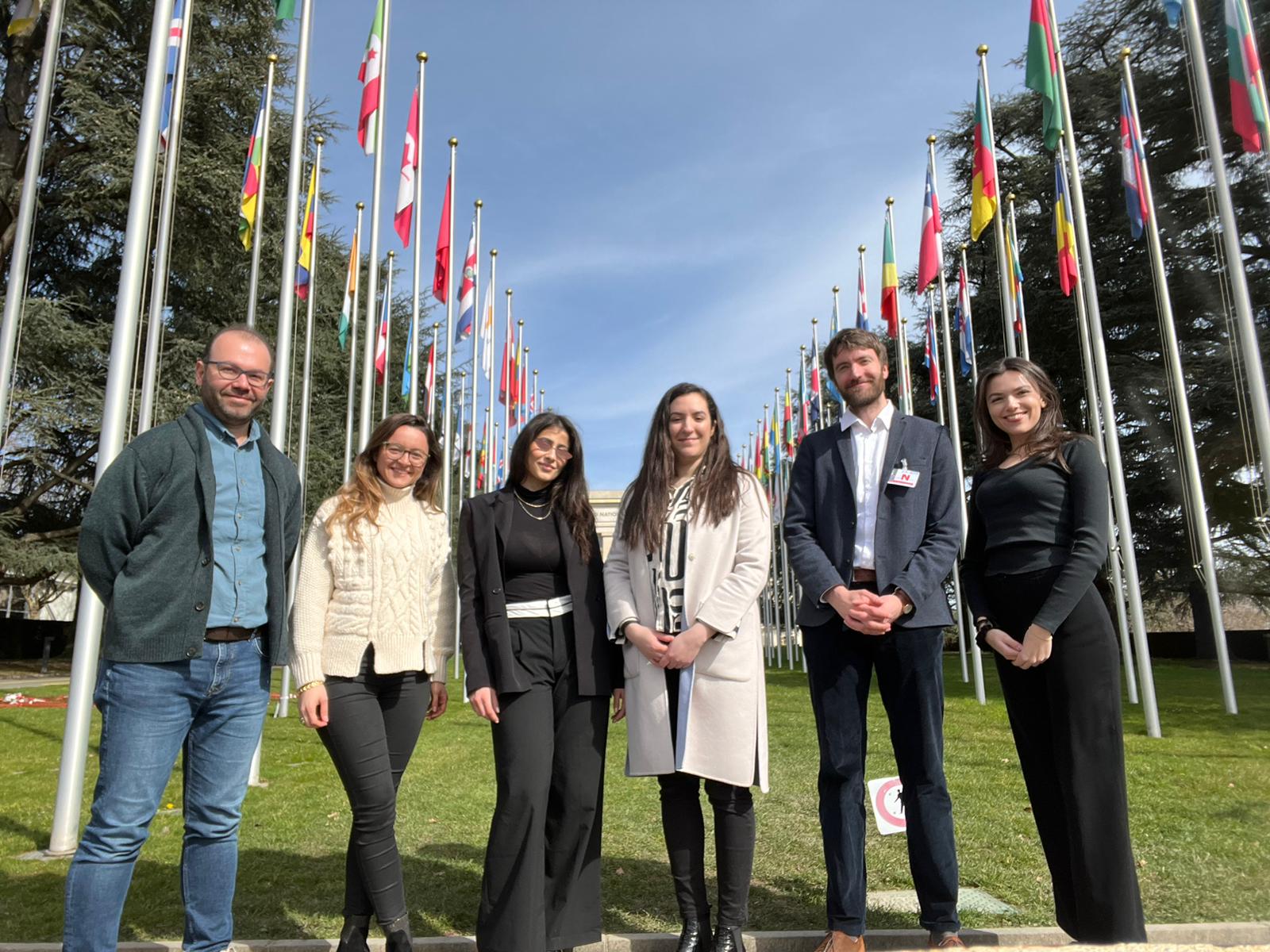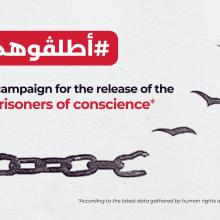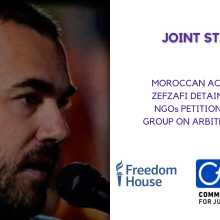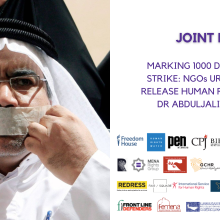March 26, 2024

From left to right: our former Case Manager Saadeddine Shatila, Human Rights Officer Falah Sayed, Communications Officer Zeinab Fayad, Executive Director Inès Osman, Legal Advisor Alexis Thiry, Legal Researcher Tanya Boulakovski.
One year ago, on March 1, 2023, we at MENA Rights Group began a three-month trial of the “4-day work week”. Given the trial’s success, we decided to implement this policy permanently. Now, we wish to share our thoughts after a whole year, as well as address some of the questions we often receive.
First, what is the 4-day week? For us, it means 32 hours of work, Monday through Thursday, while maintaining 100% of the salary. Many tend to confuse this with working 80%, but it is different. Pay remains the same as working full time and the policy applies to everyone in the organisation. We also do not squeeze 40 hours of work over 4 days.
Before the trial, we had set out two conditions of success. First, the 4-day work week must allow us to at least maintain (or increase) our productivity, i.e., being able to get the same amount of work done in fewer hours. Second, it must increase our team’s quality of life. As can be guessed, our team was happier and there was no negative impact on our work. The latter is important to note as our small team was already efficient and very productive, and we were sceptical that we could be so even more. In fact, evidence has largely shown that the 4-day week increases productivity as employees’ happiness and motivation are boosted.
Of course, the 4-day week does have some cons. As appealing as it is, we also want to be transparent on the downsides. Our days feel more condensed, and we sometimes feel like we could use that “extra” Friday. We occasionally have to compromise and deal with emergencies or time-sensitive matters on Fridays. However, this has remained the exception rather than the rule. Last, we also have to manage our partners’ expectations considering few organisations have adopted such a practice.
Yet, we feel that the pros outweigh the cons. Obviously, there is no one-size-fits-all approach and the 4-day week is not the magic solution to all issues the human rights and NGO sectors are facing. However, we believe it is an important first step to prioritise the well-being of your team that is showing great dedication to ever more demanding work. As is often told, the fight for human rights is a marathon, not a sprint, and having the opportunity to properly recharge also allows us to show up in the best way possible for those we serve.
As we move forward, we encourage our team to enjoy their three-day week-end in the way that fits them best, so as to start their week energised and motivated. We also want to encourage those in other organisations to at least give it a try. And if your work is not impacted, but getting better because your team morale is high, why not keep it? Do reach out to us if you are interested, our team would be happy to answer your questions or concerns.








